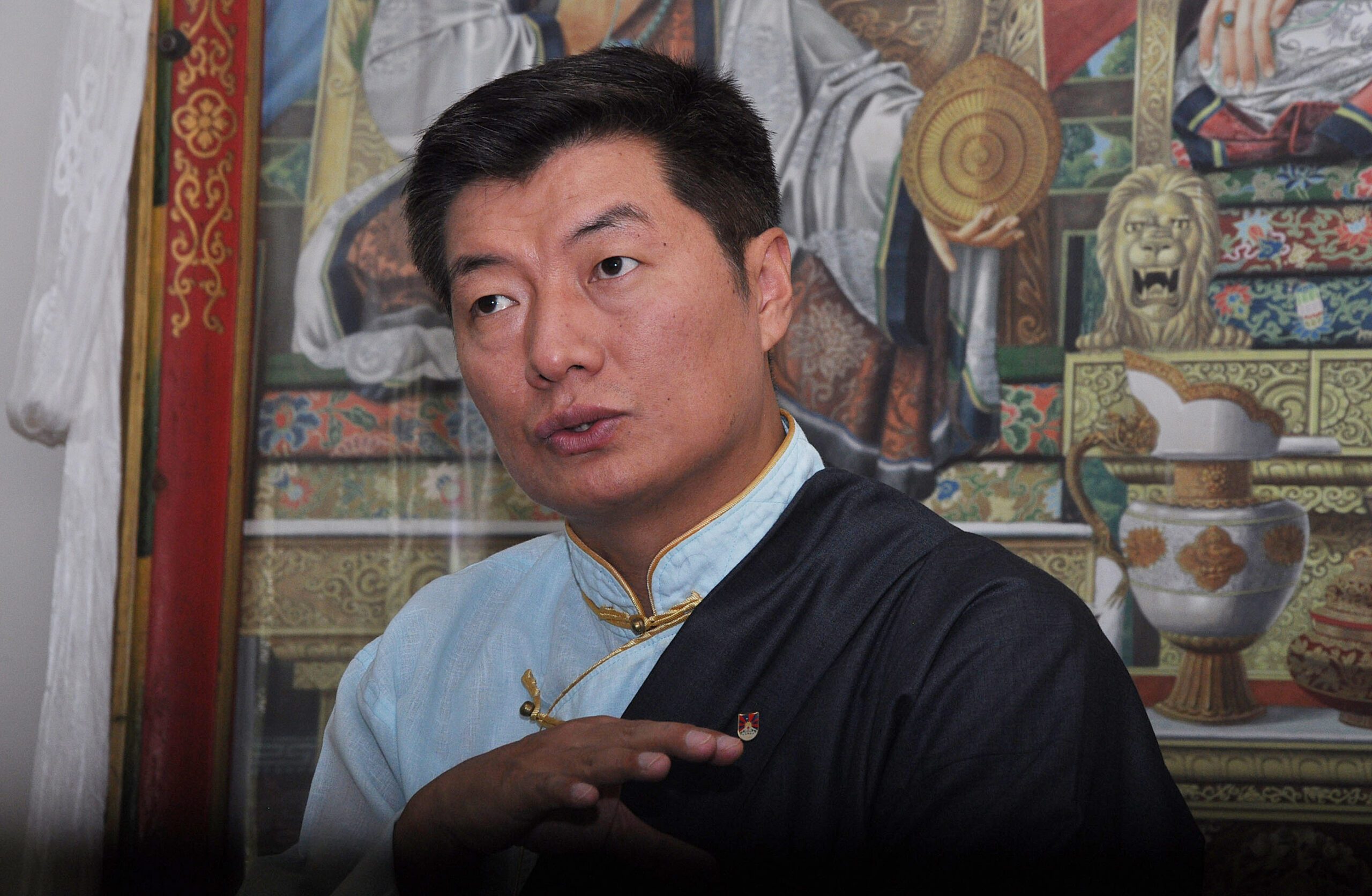SUMMARY
This is AI generated summarization, which may have errors. For context, always refer to the full article.

DHARAMSALA, India (UPDATED) – Exiled Tibetans have reelected Lobsang Sangay as their leader, the election commission said Wednesday, April 27, 5 years after the Dalai Lama ceded political power in a bid to foster democracy and secure his succession.
The 48-year-old former academic won 57% of the vote in the second round held last month, easily retaining the role that he first took on in 2011 when the Dalai Lama announced he was stepping back from political life and devolving his responsibilities.
After the result was announced, he vowed to continue the “freedom struggle” of the Tibetan people until they win genuine autonomy.
“We will continue as long as it takes til basic freedom is restored in Tibet. Til genuine autonomy is granted to Tibetan people inside Tibet,” he told journalists in Dharamsala.
Around 90,000 Tibetans in 13 countries from Australia to the United States had registered to vote in the elections for a Sikyong, or political leader.
Sangay had been widely expected to win the elections, the second to be held among Tibetan exiles across the world.
But he took fewer votes than his rival Penpa Tsering in the northern Indian hill town of Dharamsala where his government-in-exile is based, and where some voters said he had achieved little in his first 5-year term.
Both he and Tsering, 49, favor the “middle way” approach of the Dalai Lama that advocates a peaceful campaign for greater autonomy for the Tibetan people, rather than all-out independence from China.
The Tibetan spiritual leader remains revered in the exile community and many consider challenging his views to be heresy – even though he has himself urged people to do so.
Dalai Lama’s health sparks fears
But Lukar Jam Atsok, a third candidate who was eliminated in the first round of voting, won significant support for his argument that exiles should fight for Tibet’s independence, and some were angered when his name was not included on the ballot for the second round.
Unlike his rivals, the 44-year-old writer was born in China, where he was imprisoned for his political activities before he managed to escape into India.
Thousands of Tibetans have fled their Himalayan homeland since China sent in troops in 1951, and many have settled in India.
Sangay said he would create a new government after two of his ministers resigned during the lengthy and at times fractious election campaign.
“I will put extra effort to maintain and restore unity and civility among Tibetans in the light of the recent election,” he added, decrying what he called “negative campaigning.”
The Dalai Lama was widely reported to have been unhappy with tactics deployed during the election campaign after he used a recent speech to lament a “decline in morality” in Tibetan society, prompting the two final candidates to apologize.
Sangay said the success of the polls showed the “consolidation of democracy” among Tibetan exiles and urged the world to recognize the legitimacy of the government in exile, which is not recognized by any foreign state.
But many Tibetans still worry about what will happen to the movement after the death of the 80-year-old Dalai Lama, a Nobel peace laureate who enjoys an unparalleled status on the world stage.
The globe-trotting Buddhist monk raised concern among his millions of followers last year when he scrapped a tour of the United States for health reasons. – Tenzin Tsering, AFP / Rappler.com
Add a comment
How does this make you feel?
There are no comments yet. Add your comment to start the conversation.